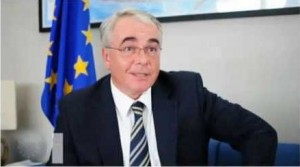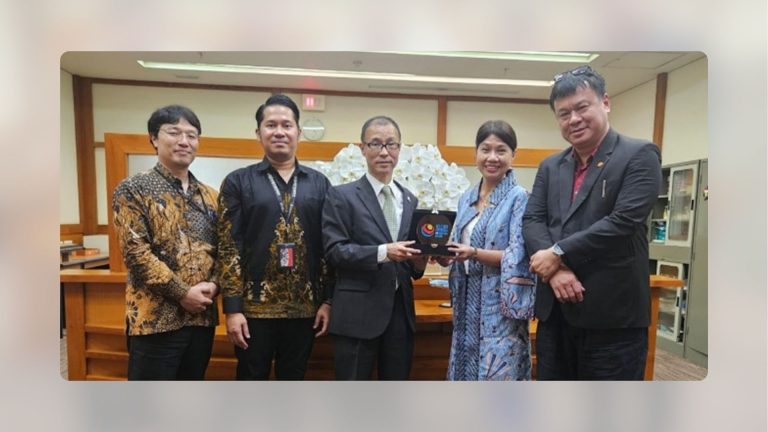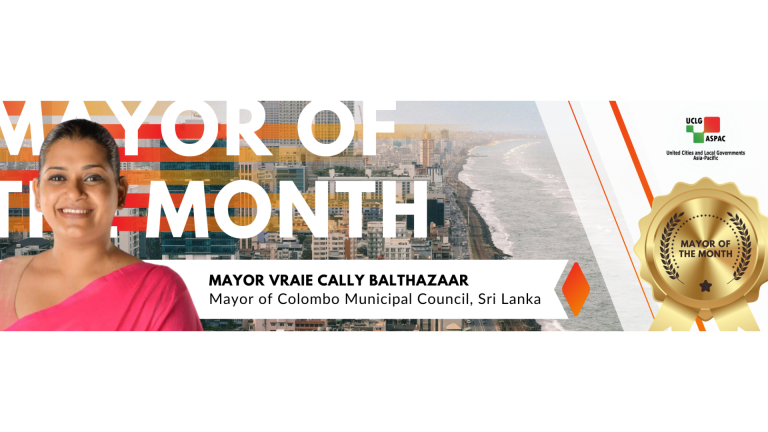WHAT do you think about the strategic role of ASEAN in creating partnership with the EU in the South East Asia region?
ASEAN and the EU are natural partners, different, but similar (or the other way round). We share the same “DNA”, because we believe both in regional integration and pursue regional integration persistently and very seriously. We have a very substantive agenda together, the EU and ASEAN. At the ASEAN-EU Ministerial in Brunei (on 26 and 27 April) we agreed to an ambitious Plan of Action 2013 – 2017 mapping out our joint activities in the next five years in many areas: political and security, economic, trade, education, people-to-people etc.
What kind of initiatives have been supported by the EU for the further development of ASEAN?
Over the years the EU has supported ASEAN development and integration with a wealth of support programmes. ASEAN integration is supported with programmes worth an average of 10 million euro per year. Specific programmes for support to economic integration have been APRIS I and APRIS II (12 million euro together), which is followed by a programme which will come on stream in the fourth quarter of 2012 ARISE (ASEAN Regional Integration Support from the EU), worth 15 million euro. Support will be given to technical issues of customs integration and transport facilitation and also, very directly to the functioning of the ASEAN Secretariat, the “nerve centre” of the ASEAN integration process. This said, both the EU (as the Community) and its individual Member States support ASEAN MS bilaterally with development programmes worth something like 300 million euro per year. Details can be found in the attached brochure. In addition, a number of ASEAN Member States benefit from favourable treatment in their trade relation with the EU (General System of Preferences).
What kind of programs or initiatives have been initiated by the EU to support north-south and south-south cooperation? What are major achievements so far?
There are many such programmes, too many to mention in the context of this short interview – and also not all of them are well known. The EU is the largest provider of official donor funds so it is natural we support North-South and South-South cooperation. Areas of such cooperation are mediation and conflict prevention and dialogue on international common areas of concern.
What strategic role can be plaid by ASEAN within the framework of nurturing north-north and north-south cooperation, especially in collaboration with the EU?
This question is rather for ASEAN and its Member States to reply. However, ASEAN deserves praise for its very active pursuing of what it refers to as “Regional Architecture”, its ASEAN+ process in which it engages with giant neighbour China and with Japan and Korea. This is political engagement, but also an economic engagement through free trade agreements and the Chiang Mai initiative. In addition to this ASEAN established the East Asia Summit where it engages with a wider ring of countries (the three plus Australia, New Zealand, India and since last year also the US and Russia).
And then it has, in addition, the ASEAN Regional Forum with an even wider circle of partners, including the European Union (as EU). This is an impressive achievement of “multilateral reaching out” or confidence building and preventive diplomacy as ASEAN puts it itself. I don’t think we should frame this in terms of north-south or south-south, it is global and forward looking and very impressive. And it is both political (not least the EAS and the ARF) and economic (a plethora of free trade agreements).
EU has supported two projects in partnership with UCLG ASPAC: “Supporting Decentralisation in Developing Countries” and “Partnership for Democratic Local Governance in Southeast Asia (DELGOSEA)”. These projects aim to raise the voice of local governments on the regional level, support decentralisation measures and promote local democractic development in SEA countries. How do you assess the progress of these projects, and what kind of impacts do you expect for the participating countries?
Both EU funded projects, I am told by my colleagues, i.e. “Supporting Decentralisation in Developing Countries” led by UCLG ASPAC and “Partnership for Democratic Local Governance in Southeast Asia (DELGOSEA)” led by Konrad Adenauer Stiftung create synergies. They have so far been quite sucessful aiming at tangible results. Their “empirical” approach makes sense. Learning from better peer practices across cities in the ASEAN region and jointly reflecting upon decentralisation knowledge across the various levels of governments: locally, nationally, regionally. Conclusions are more solid, if built on sucessfully tested examples. These two projects nicely complement our sucessful regional cooperation programmes supporting ASEAN integration. Impact is at the heart of EU cooperation.
A conference on “Strengthening Decentralisation and Local Governamce in ASEAN Countries through a Multi-Stakeholder Approach: will be jointly organised by the two mentioned EU funded projects (Supporting Decentralisation in Developing Countries’, and ‘Partnership for Democratic Local Governance in Southeast Asia’ -DELGOSEA) in Phnom Penh furing the first week of May 2012. The objective of the conference is to start a permanent dialogue among local government associations (LGAs), high level government representatives, ASEAN, and civil society organisations. How to you appraise this event and what are the possibilities of the EU to support the sustainability of this permanent dialogue in the future?
Unfortunately I was not able to attend this conference myself. However, I sent a colleague to attend on my behalf. I am glad to hear that the conference attracted high level attendance including ASEAN Deputy SG Bagas Hapsoro and Secretary of State Sak Setha from the Cambodian Ministry of Interior. The meeting was very productive covering such critical issues as the role of local authorities in disaster managment and economic development but also important process issues as reflected in the key outcome of the conference: the document promoting a multistakeholder approach for local development (“The Phom Penh Statement”). This can potentially lead to an important further debate in ASEAN, if the region so wishes. In Europe, we acknowledged the vital role of local authorities in the integration process with the establishment of a Committee of the Regions in 1992.
The EU funded DELGOSEA Project is intended to create a network within Southeast Asia for the replication of success stories in local governance between cities and municipalities. Currently the project is implemented in Cambodia, Indonesia, Philippines, Thailand, and Vietnam. What would be your recommendation regarding a potential expansion of this project on a larger larger scale while also involving additional ASEAN member countries?
Demand driven high quality work provides clear direction and is the best route to success, specifically if it is inclusive.
How do you think UCLG ASPAC as the lead association of local governments in Asia Pacific could support collaboration efforts between EU and ASEAN member countries in the future?
For almost a decade the EU launches dedicated call for proposals in support of sound initiatives of local authorities. Whilst Non State Actors have very enthusiastically embraced it, as again evidenced in recent info sessions, and participate in this contest in great numbers local authorities have so far been far more restrained. Perhaps UCLG ASPAC could increase awareness of it’s members about this instrument? For instance, in Indonesia a call is ongoing (deadline for application 30 May) with a focus on economic development and public finance managment initiatives.
Further info:
• EU-ASEAN Programme Cooperation
• EU-ASEAN Natural Partners: 35 Years of Friendship and Cooperation











